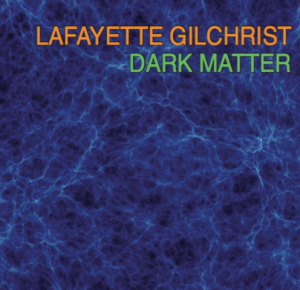Ariadne’s Notes: A fascinating interview with Lafayette Gilchrist calling into the World Poetry Cafe radio show on August 22 at 1:30 pm PST to discuss his new album Dark Matter. Two things really stood out to me, one was the discussion about dark matter ” “Dark matter is the thing that keeps everything from drifting apart,” says Gilchrist, whose intellectual curiosity seems as far-reaching and unquenchable as his musical tastes. Dark matter permeates everything. It’s difficult to get one’s head around, but the aspect of it that fascinated me was it being this invisible force that holds the universe together. ” I had been reading a book on Einstein that spoke about dark matter in a similar manner which I thought was an interesting coincidence. The other really interesting aspect was the Go-go music on the CD. Great to dance to! Below are a couple of quotes about it:
“Go-go is a popular music s associated with funk originating in the Washington, D.C., area during the mid-60s to late-70s which remains popular in the Washington metropolitan area as a uniquely regional music style. “Some early bands credited with having developed the style are the Young Senators, Black Heat, and singer-guitarist… Wikipedia.
https://www.huffingtonpost.ca/entry/go-go-music-dc-culture-gentrification_n_5cb0bd55e4b082aab0853962
LISTEN TO THIS SPECIAL CD LAUNCH HERE:



